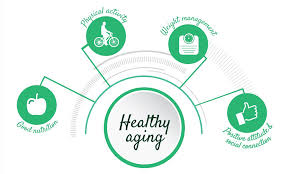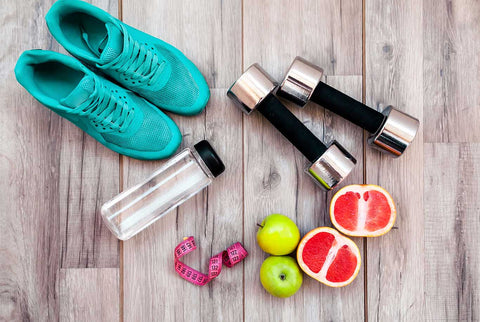Fitness Tips for Healthy Aging

Fitness Tips for Healthy Aging

As you age, daily activity and dedication to balanced nutrition can have a positive effect on your body. Here are a few balanced exercise routines that can help you to get and stay fit for the long term, if you keep at it.
There are many benefits that are associated with living a healthy, active lifestyle. Reduced stress, improved body confidence and improved cardiovascular health are just a few. Regular physical activity is important regardless of your current age and fitness level. It’s never too late to get started with a new exercise routine.
Dedication to living a healthy, active lifestyle as you age can help to counteract aging effects, such as muscle loss, decreased bone density and decreased joint mobility. Yet, many people believe that as we age our need for activity diminishes. The truth is that the older we become the more focus we must put on staying active, so that we can maintain a good quality of life, perform daily tasks and maintain good overall health.
It can be difficult to understand what exercises are appropriate for your current age and level of fitness. Quite often, it’s not until after you get injured that you realise you were performing exercises that were too advanced. I believe that following a balanced and varied exercise routine that slowly progresses as your fitness level and strength improves is the best approach for people of all ages.
Understanding a few basic fitness terms can make a big difference in the way you approach your routine.
Here are four modes of fitness that you should consider doing as part of your routine:
Low impact
Low impact exercise involves movements that place minimal direct force on the body. It’s typically the best type of exercise for people who are just getting started with a fitness plan, or those who have taken time away from exercise. It’s also often recommended for people who have physical limitations due to injury. Examples of low impact exercises include walking, cycling, swimming and using a rowing or elliptical machine.
High impact
High impact exercise is any activity that places a direct force on the muscles and joints of the body. It generally involves having two feet off the floor at one time. Jumping, hopping and running are all examples of high impact exercise. Performing this type of exercise is essential for building strong muscles and bones. However, you should be cautious of doing too much too soon, especially if you are new to exercise or have a significant amount of weight to lose. High impact activity places stress on joints, and you should slowly build up to including this type of exercise in your routine.
Low intensity
Low intensity exercise refers to working out at a lower level of exertion. Intensity level and exercise are closely related. When you are exercising at low intensity, you will feel as though you could carry on a conversation and stay within 60-70% of your max heart rate.
High intensity
High intensity exercise refers to pushing your body to work hard. Exercising at a high intensity has become increasingly popular in the fitness world. This type of training used to be reserved for athletes; however, there are many benefits associated with it, so lots of people incorporate high intensity training into their weekly routine. High intensity training sessions tend to be shorter in duration, making it a practical option for people who want to get results but have limited time available. It’s important for people to check with their health care provider to ensure that they are healthy enough to participate in high intensity exercise.
Mixing up your exercise and combining several types of training into your routine may help you to avoid overuse injury and get the healthy aging benefits you desire.
